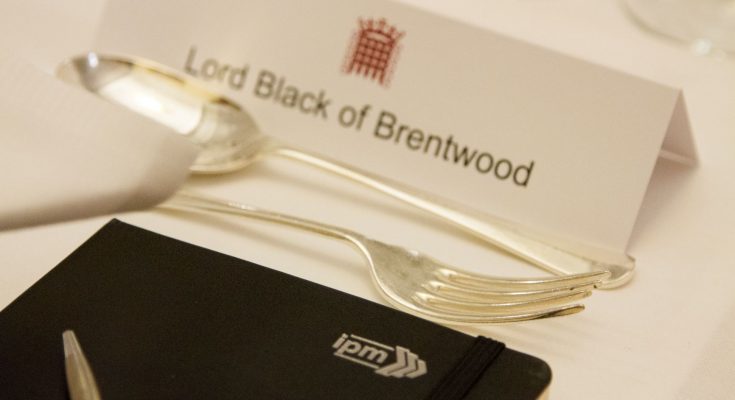The IPM is delighted to see that the Committee on Democracy and Digital Technologies, Chaired by Lord Puttnam, issued their report yesterday recommending that the Government should act immediately to deal with what they term a pandemic of misinformation that poses an existential threat to our democracy and way of life.
The IPM, as part of the self-regulatory system fully support a process that any advertising message, general or political on any media platform that influences and encourages a member of the public to take action, whether it is to buy a product, use a service or support an idea, must be regulated.
In 2016, as Chairman of the Institute of Promotional Marketing (IPM), together with our President Lord Black of Brentwood, Graham Temple (then Chairman) hosted an industry dinner at the House of Lords to discuss the need to regulate political advertising with senior industry leaders including, Lord Saatchi, Guy Parker (ASA CEO) and Oliver Dowden MP ( recently appointed HM Secretary of State for Digital, Culture, Media and Sport). At that time indications were that regulating political advertising was unlikely to happen so the findings of this report warmly welcomed.
The summary of recommendations for political advertising are:
- The report calls for political advertising to be brought into line with other advertising in the requirement for truth and accuracy. It says the political parties should work with the Advertising Standards Authority and other regulators to develop a code of practice that would ban “fundamentally inaccurate advertising during a parliamentary or mayoral election or referendum”. This Code would be overseen by a Committee including the ASA, the Electoral Commission, Ofcom and the UK Statistics Authority and would have the power to remove political advertising that breached the code.
- This new regulation would be supported by a significant toughening up of electoral law including a requirement for online political material to include imprints indicating who has paid for them, real time databases of all political advertising on online platforms and an increase in the fines that the Electoral Commission can impose on campaigners to £500,000 or four percent of the total campaign spend, whichever is greater.
The full report can be accessed here – https://publications.parliament.uk/pa/ld5801/ldselect/lddemdigi/77/7702.htm
Lord Black of Brentwood, The IPM’s President states “It’s four years since Graham Temple, then Chairman of the IPM, launched a perhaps long-overdue debate within the industry about the regulation of political advertising. A referendum and two general elections later, and the debate the IPM kicked off with great foresight is right back there at the top of the agenda for all those involved in media policy. As Graham rightly says, there is a lot of hard work ahead but I hope the recent report of the Select Committee I sat on, looking at Digital Technology and Democracy, will help move things along. As always, the IPM and its members – as a key part of the industry’s hugely successful system of self regulation – will have a crucial role to play in helping shape the debate.”
With an outstanding record regulating in general advertising, the ASA’s inclusion in The Committee comes as no surprise, and will be, we’re sure fully supported by all of us involved in the self-regulatory process. There is simply no organisation better to do this.
The IPM would also like to mention the outstanding contribution The Coalition for Reform in Political Advertising has made to this process.
So we are now all agreed that political advertising should be regulated. But can it be done? That remains to be seen. Now the genie is out the bottle and the hard work to make this work is yet to begin and may take some time. Can we at least all agree in the meantime, to the addition of a simple disclaimer or “health warning“, such as required for financial advertising is added to all political advertising to advise the voting public that the message they are reading has not been regulated?

























